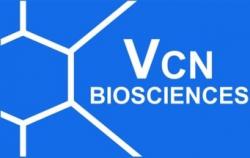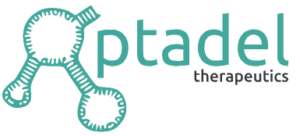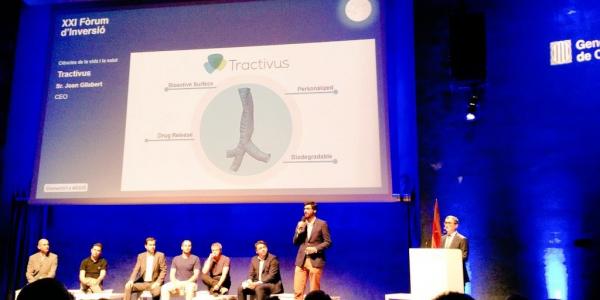Spin-offs
What is a spin-off?
A spin-off is a small, newly created company, created for the development and/or use of products or services based on technologies or knowledge originating from research activities carried out at a public or private research centre or institution.

ADmit Therapeutics (ADmit)
This is a spin-off created with the objective of developing and marketing a new type of Kit for the early detection of Alzheimer’s by means of an epigenetic blood analysis, with measurement of methylcytosine in mitochondrial DNA.
The main aim of ADmit Therapeutics is to develop a cheap, fast and painless diagnostic kit that can be used to detect Alzheimer’s during the early stages of the disease in patients with mild cognitive impairment, both in primary care as well as in hospitals and private physician offices. With the focus of a prevention plan in older individuals, early detection would allow rapid intervention to reduce disease progression, improve the patient’s quality of life and minimise the associated direct and indirect costs for both health systems and families.
Xenopat
This is a spin-off that offers services focussed on assistance in the development of cancer drugs and personalised oncology treatment.
Xenopat offers its services through the use of Orthoxenografts®, mouse models in which a small piece of human tumour (xenograft) is implanted in the same organ of origin (orthotopic patient-derived xenografts (PDXs)).
In addition, it has exclusive rights not only to generate new Orthoxenografts® based on customer needs but also to exploit the OrthoXenoBank®, a collection composed of more than 200 models that represent the most frequent histological subtypes of the following locations: colon, lung, ovary, pancreas, endometrium, sarcoma, head and neck, liver, and germ cells, among others.

TRACTIVUS
Technology-based spin-off created to develop silicone prostheses (via 3D technology), which can be customised according to patient type, covered with bioactive surfaces (anti-bacterial and/or drug-releasing). The main challenges faced by Tractivus over the next two years consist of optimising the antibacterial prosthesis and improving its scalability, validating its activity and safety, initiating regulatory pre-clinical and clinical trials and transferring this technology to other devices.

VCN BIOSCIENCES
This is a start-up focussed on the development of new therapeutic approaches to tumours with no known effective treatment.
The company designs highly selective and highly efficient agents that regenerate and self-amplify exclusively in tumour cells using the technology of the oncolytic adenoviruses platform. The selectivity of VCN Biosciences’ oncolytic adenoviruses enables its administration by systemic route, an aspect which is especially relevant for the treatment of metastasised cancer. Unlike in chemotherapy, the ability of viruses to self-amplify in tumour cells allows the effective therapeutic dose to increase over time. This set of properties makes the VCN candidates a promising alternative in the treatment of refractory tumours, such as pancreatic tumours, which are the VCN-01 target tumours.

RemAb Therapeutics (RemAb)
RemAb is developing a First-in-Class injectable drug (RA01) for the prevention of ICU-acquired bacterial infections. The medicine interferes with a key mechanism of bacterial pathogenesis, boosting the immunity against multi-drug resistance bacteria.

Aptadel Therapeutics
Preclinical spin-off focused on developing a new platform for targeted therapy against cancer. This platform, based on aptamer technology, consists of nanoparticles loaded with therapeutic agents, such as RNA molecules or chemotherapeutic drugs, targeted to different tumors. This strategy allows the release of the therapeutics agents only at a specific point, thus avoiding side effects and improving therapy effectiveness.
Currently, Aptadel's main target is Ewing Sarcoma, a rare variety of bone cancer, affecting children.

AtG Therapeutics
AtG Therapeutics is a spin-off company from the IDIBELL and the Catalan Institute of Oncology (ICO) specialized in the discovery and development of new therapeutic technology for cancer resistance to improve the lives of cancer patients. AtG is developing a new drug to prevent anti-angiogenics resistance with its patient selection biomarker to identify who will benefit from the treatment.

